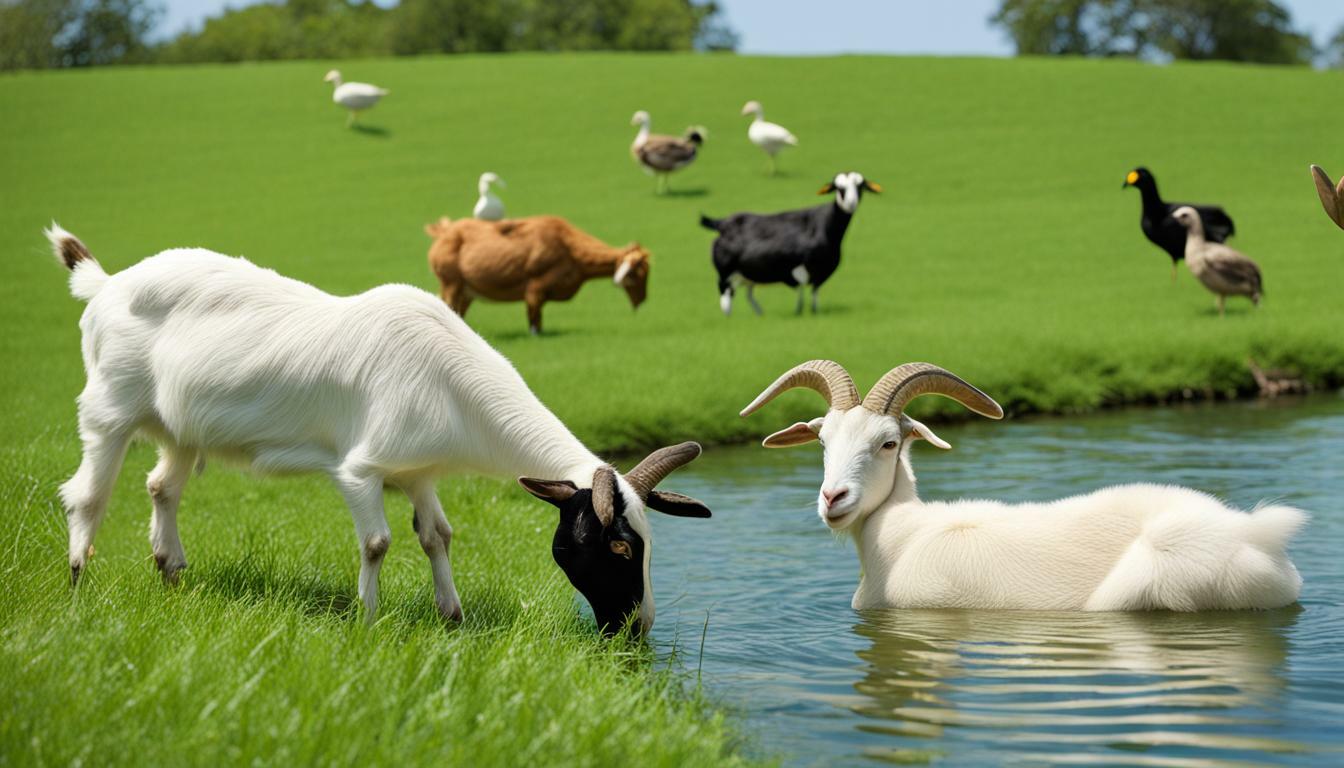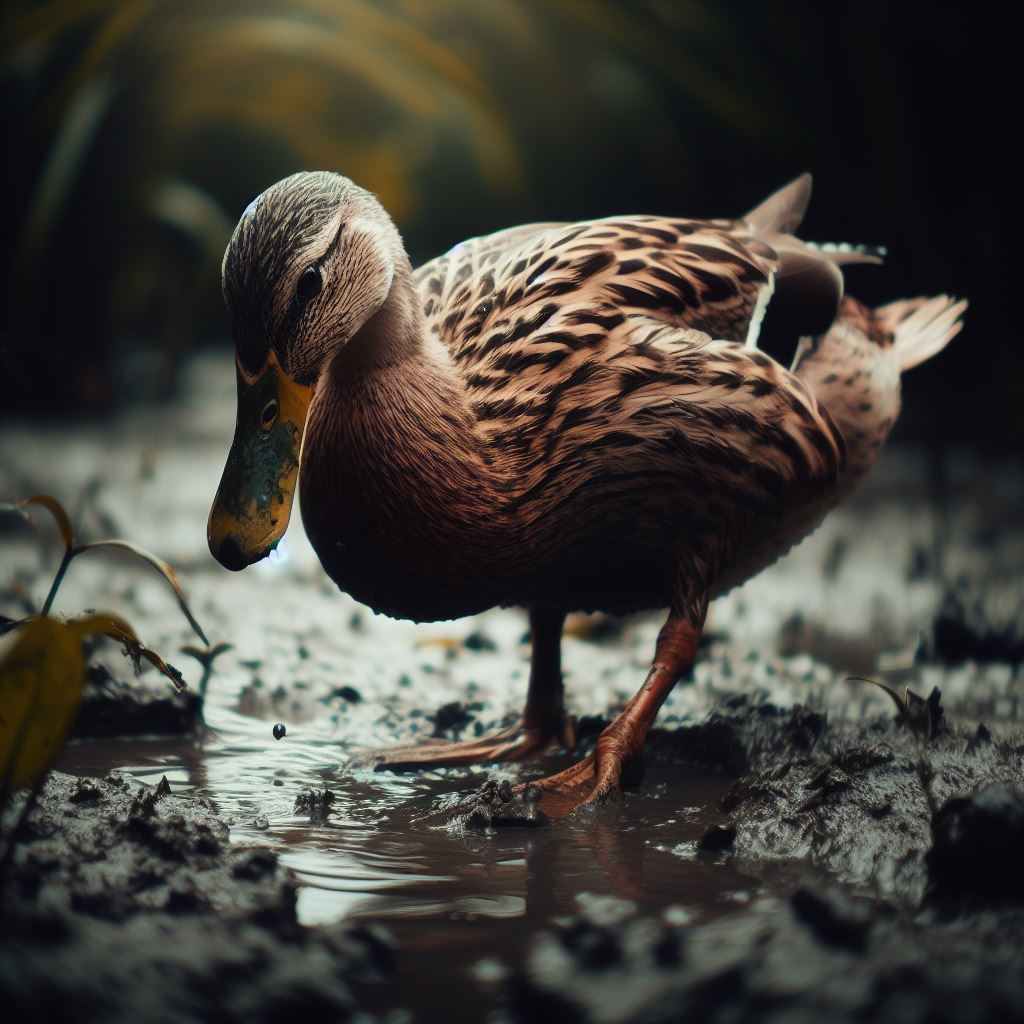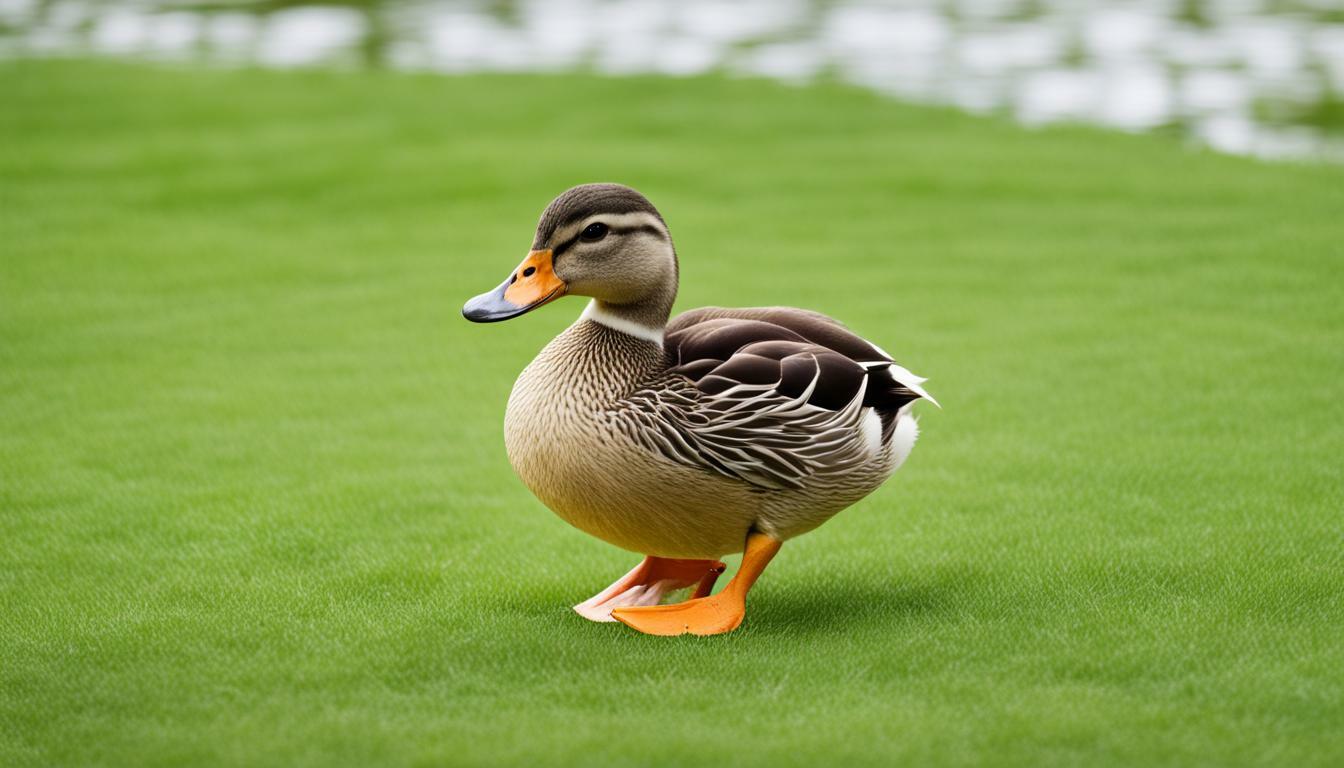Can Ducks And Goats Live Together? Exploring Farm Animal Compatibility

Table of content:
Raising ducks and goats together can be a rewarding experience for any farmer or homesteader. However, proper planning and care are crucial to ensure both species thrive. This article will provide key information on duck and goat compatibility, housing, feeding, health considerations, and tips for successful co-habitation.
Housing Ducks and Goats
When considering housing ducks and goats together, the first priority should be meeting the fundamental needs of both species. Here are some key points:
- Shelter – Both require shelter from extreme weather and predators. A roomy barn, shed, or coop can accommodate them. Ensure proper ventilation and bedding.
- Space – Allow adequate room for resting, eating, and roaming. A general rule is 2-4 square feet per duck and 10-30 square feet per goat. The more space the better.
- Fencing – Perimeter fencing should be sturdy and prevent predator entry. Goats require additional, reinforced fencing to keep them from damaging duck housing areas.
- Water – Ducks need constant access to clean water for swimming and preening. Ponds, troughs, or kiddie pools work well and help separate their living space.
- Bedding – Absorbent bedding like straw or wood shavings helps keep housing dry. Routine cleaning is a must.
Tip: Housing ducks and goats separately within one large barn allows each group their own space while still sharing one shelter.
Are Ducks and Goats Compatible?
Whether ducks and goats can coexist peacefully takes some thoughtful management. Here are important considerations when keeping them together:
- Natural behaviors – Ducks quack, waddle, swim, and forage. Goats climb, jump, graze, and ruminate. Their instincts must be accommodated.
- Social structure – Ducks stay paired or in small flocks. Goats roam and mingle in larger herds. They require different group sizes.
- Predator awareness – Goats are highly alert while ducks are vulnerable. Keeping them together means more diligent protection.
- Cleanliness – Ducks produce wet, messy waste. Goats prefer dry, tidy bedding. Their potty habits conflict.
- Food and water – Ducks foul water sources while eating. Goats waste any feed scattered for ducks. Separate provisions are key.
The consensus is: With attentive management, ducks and goats can successfully cohabit. But they thrive best in separate spaces suited to their individual needs.
Feeding Ducks and Goats in One Barn
Since ducks and goats have different nutritional needs, their diet must be carefully controlled when housed together.
Ducks
- Protein – Supplement feed with min. 16% protein poultry ration.
- Calcium – Layer feed provides calcium for egg production.
- Water – Ducks require wet mash and fresh water for swallowing food.
- Grazing – Provide access to grassy areas to forage for plants, seeds, and insects.
- Treats – Offer vegetable scraps, mealworms, and grubs for variety.
- Grit – Support digestion with insoluble grit like oyster shells.
Goats
- Fiber – Grass, hay, and leafy greens provide necessary roughage.
- Grains – Limit grains as they can cause health issues.
- Minerals – Free choice loose salt/mineral mix.
- Browse – Allow browsing on trees, shrubs, and weeds.
- Cleanliness – Keep feed troughs clean to avoid moldy feed.
Tip: Feed at separate stations, allowing ducks wet feed and goats dry hay. Remove uneaten portions promptly.
Health Considerations for Co-Habiting
When housed together, preventative care is crucial to avoid disease transmission between ducks and goats:
Biosecurity
- Isolate any new introductions for a quarantine period.
- Limit exposure to wild birds which spread illness.
- Disinfect housing between new batches of birds.
- Avoid sharing grooming tools or moving items between enclosures.
Parasite Control
- Deworm ducks and goats routinely on a schedule.
- Do not allow ducks access to goat feces which can harbor worm larvae.
- Check for external parasites like mites; treat accordingly.
General Health
- Trim overgrown goat hooves which harbor bacteria.
- Monitor for pest infestations, standing water, and mold – correct immediately.
- Remove manure and wet bedding promptly to reduce odor and flies.
- Ensure adequate ventilation and dry bedding at all times.
Nutrition
- Feed species-appropriate diets to avoid nutritional deficiencies.
- Provide ducks layer feed for calcium; goats need phosphorus balance.
- Ensure access to clean, fresh water at all times.
With attentive flock management, duck and goat health can be maintained in a shared housing situation. But staying vigilant to their needs as separate species is vital.
Introducing & Managing Ducks with Goats
When first mixing ducks and goats, use these tips for a smooth transition:
- Begin introductions slowly, initially separating the groups but allowing interaction through a barrier. Watch for signs of stress.
- Provide hideouts for ducks to retreat from curious goats if needed. Monitor for chasing or aggression.
- Allow the highest-ranked goats first access to the ducks, then introduce lower-ranked members.
- Set up the habitat wisely so each species has its own space for eating, sleeping, and roaming.
- Check that all animals are healthy before combining flocks, to avoid disease transfer.
- Ensure adequate food, water, shelter, and roosting areas for the ducks in the shared space.
Daily Management Tips:
- Feed at separate stations at least 20 feet apart to reduce waste.
- Entice ducks to swim or graze away from goats during the day.
- Provide water tub for ducks to swim out of goats’ reach.
- Use dividing fencing to give ducks a protected sleeping area at night.
- Lure goats out of duck areas for 20-30 minutes daily so ducks can eat undisturbed.
- Check bedding is dry and change out wet areas for ducks regularly.
With patience and planning, it’s possible to successfully integrate ducks and goats. But diligent daily care is vital. Working with their natural behaviors makes the job easier.
Final Thoughts
Ducks and goats can make charming companions on a small farm when their needs are understood. Key considerations include:
- Housing that provides space and separation for each species.
- Extra precautions for cleanliness, health, and parasite control.
- Custom feeding stations to avoid cross-contamination.
- Slow introductions with continued supervision.
- Daily management to maintain ideal conditions for both animals.
While ducks and goats have distinctly different natures, they can live together quite amicably with an attentive caretaker dedicated to each animal’s welfare. With proper care and free access to water, these unique barnyard buddies can thrive side-by-side.
Welcome. I’m Adreena Shanum, the proud owner of this website, and I am incredibly passionate about animals, especially poultry. I founded adreenapets.com as a labor of love, stemming from my desire to share my knowledge and experiences with poultry enthusiasts worldwide.




